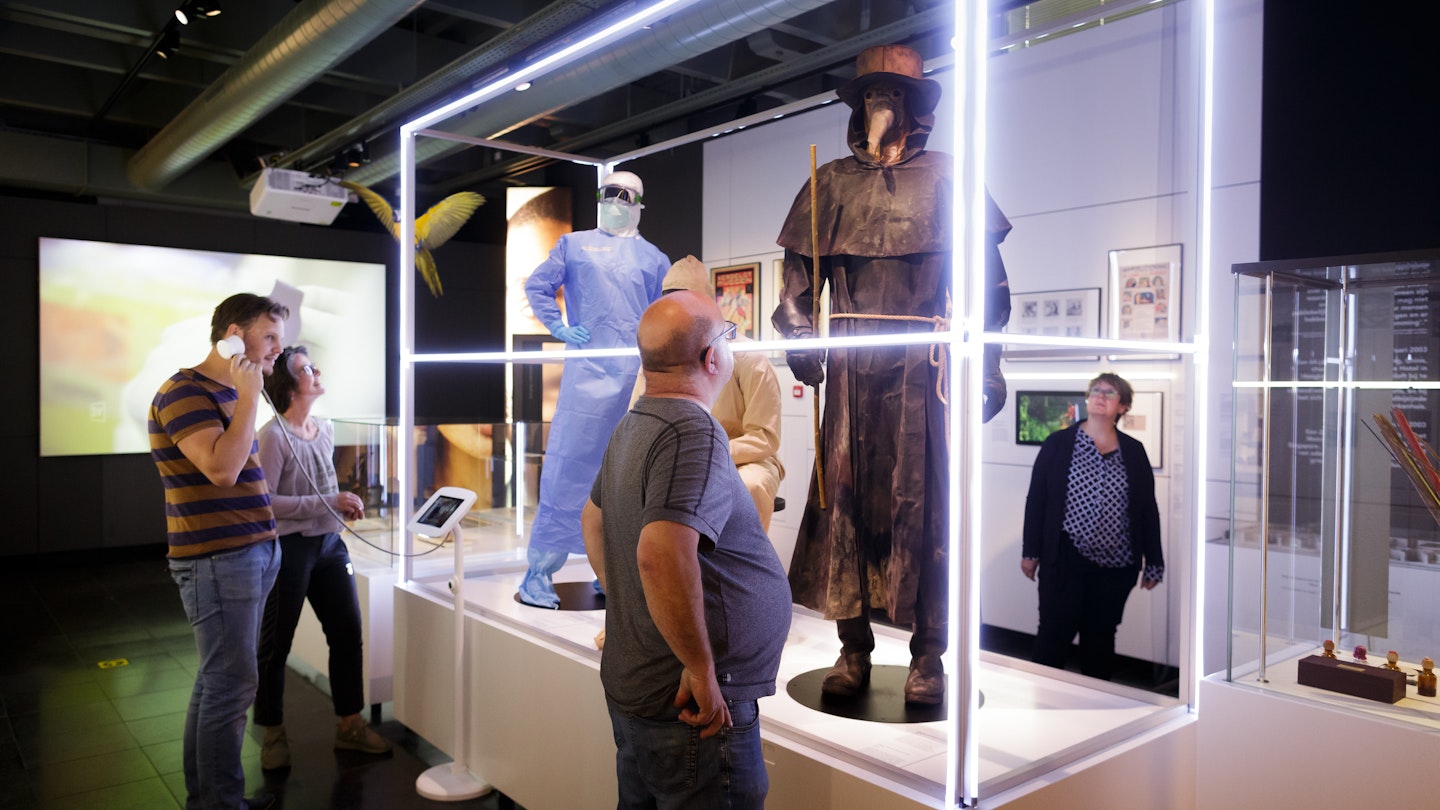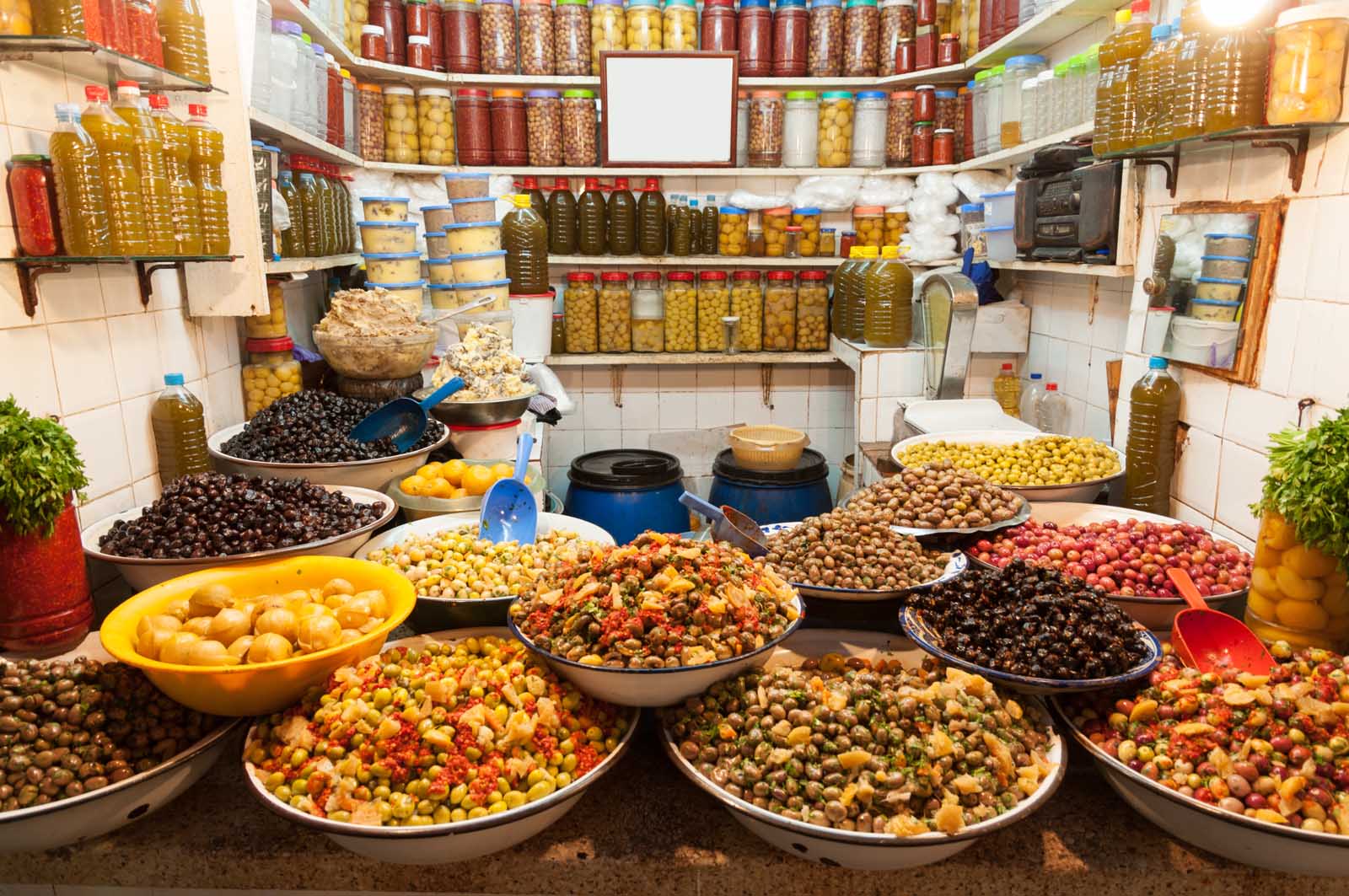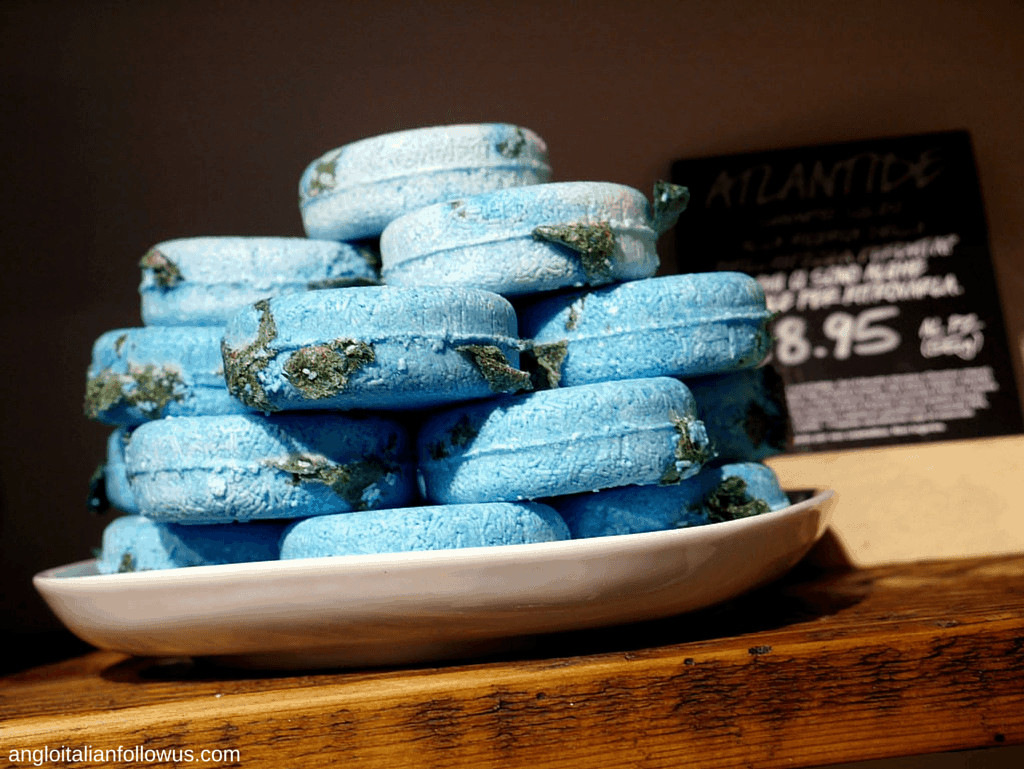A new exhibition focused on contagious diseases throughout history and the profound impact they have had on the world has opened at in the Netherlands, ironically following delays caused by COVID-19.
Officially opened in by Dutch King Willem-Alexander, the exhibition titled Contagious! explores the history of diseases. It delves into how individuals faced epidemics and illnesses such as the bubonic plague, smallpox, and AIDS while offering insights into what history can teach us for the future along with science-based solutions. Although the project was initially scheduled to début back in March, its relevance has only grown.

The exhibition features both scientific artifacts and artistic creations. Visitors can view a plague doctor’s outfit from the 17th century crafted from raw silk, hand-colored with pigments from walnut husks, and adorned with intricate embroidery. Remarkably, it has been impregnated with the DNA of plague bacteria. Furthermore, there is a more contemporary protective suit complete with face coverings on display. Other fascinating items include a wax casting of a face exhibiting plague symptoms and a silver child’s rattle believed to have granted immunity from disease.

The exhibition also focuses on the recent outbreak of the new , engaging with the ongoing national and international discussion surrounding vaccinations. Museum director Amito Haarhuis stated that the timing of this display and the current pandemic was a coincidence that emphasizes the importance of the subject matter.
“While this exhibition has been on the schedule for some time, its relevance has heightened beyond our expectations. Outbreaks of contagious diseases have always posed a lurking danger. We aspire for this exhibition and its thought-provoking supporting programs to enlighten as wide an audience as possible about the significance of science in our lives today,” he remarked.
The Rijksmuseum Boerhaave was awarded the title of European Museum of the Year for 2019-2020. The exhibition Contagious! is currently available for view. For additional information on the exhibition, visit the official Rijksmuseum Boerhaave website.




